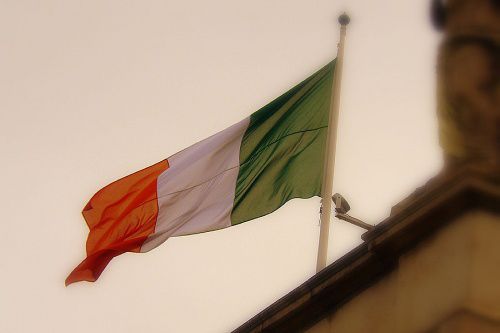The Christian message can't be shaken by a national vote, but Ireland’s decision to legalize same-sex marriage is forcing Catholic leaders to rethink how they have been keeping the faith alive among the nation's young people. “This vote has certainly changed the landscape in which the Church ministers in Ireland and the outcome offers it new and brave challenges,” said Dublin native Monsignor John Kennedy, speaking after Friday's referendum to allow same-sex couples in Ireland to marry. Msgr. Kennedy, an official of the Vatican's Congregation for the Doctrine of the Faith, told CNA in a May 25 email interview that he believed the pro same-sex marriage — or “Yes” — campaign was successful because of the sizable number of young voters who are in favor of the legislation. “For Catholics it raises serious questions about the depth of faith and conscience formation, and the link between the practice of the faith and its relevance in and to society as a whole,” he said. The monsignor’s observations about the influence of young voters are echoed in an interview given by Dublin’s archbishop Diarmuid Martin following the news that the referendum had passed. “The Church needs a reality check right across the board, to look at the things we are doing well and look at the areas where we need to say, have we drifted away completely from young people?” the archbishop told RTE. “Most of these young people who voted yes are products of our Catholic school system for 12 years,” Archbishop Martin said. “I’m saying there’s a big challenge there to see how we get across the message of the Church.” The results of Friday’s vote was 62 percent in favor of same-sex marriage, and 38 percent opposed. While 18 other countries have already legalized same-sex marriage, Ireland is the first to adopt the law through popular vote. Msgr. Kennedy said that while he did not think the “Yes” campaign was unstoppable, he was not surprised that the referendum passed passed in the end. “I believe that many had made up their minds quite a long time ago,” he said. The popular vote to allow same-sex marriage is significant in Ireland on account of its long history of fidelity to the Catholic Church, shaken only in recent decades by scandals among the clergy and religious. Nonetheless, Msgr. Kennedy said the new legislation should not be cause for discouragement, but for a stronger commitment to disseminating the Christian message. “Instead of perhaps feeling downcast by the decision, or wondering about the role of the Church in the world today, I believe that Catholics must now pause, focus, pray and advance with even greater energy,” he said. He added that Catholics should be “conscious that what they have received in the Lord's teaching, in its entirety and not just on marriage, is not something that can be altered by a national vote, by a certain percentage of those in favor of a change.” Around 60 percent of the 3.2 million eligible voters throughout the Republic of Ireland took part in the referendum. The new law comes 22 years after Ireland decriminalized homosexual acts. In 2010, the country enacted the Civil Partnership and Certain Rights and Obligations of Cohabitants Act, allowing same-sex couples to enter into civil unions. “The late Saint John Paul II once said that every generation is a continent to be conquered for Christ,” Msgr. Kennedy said. “I had some difficulty understanding the radical tone of his statement but now I appreciate what he meant.” One of the main players in the “No” campaign opposing the constitutional amendment was the Iona Institute, a Catholic advocacy group based in Ireland which promotes the role of religion and family in society. In a press release following Saturday’s announcement that the referendum had gone through, the Iona Institute director David Quinn said the campaign “was always going to be an uphill battle.” Quinn expressed concern that the hundreds of thousands of voters who opposed the referendum were not represented by Ireland’s political parties, which all supported the “Yes” campaign. He concludes: “Going forward, we will continue to affirm the importance of the biological ties and of motherhood and fatherhood. We hope the Government will address the concerns voters on the No side have about the implications for freedom of religion and freedom of conscience.”

